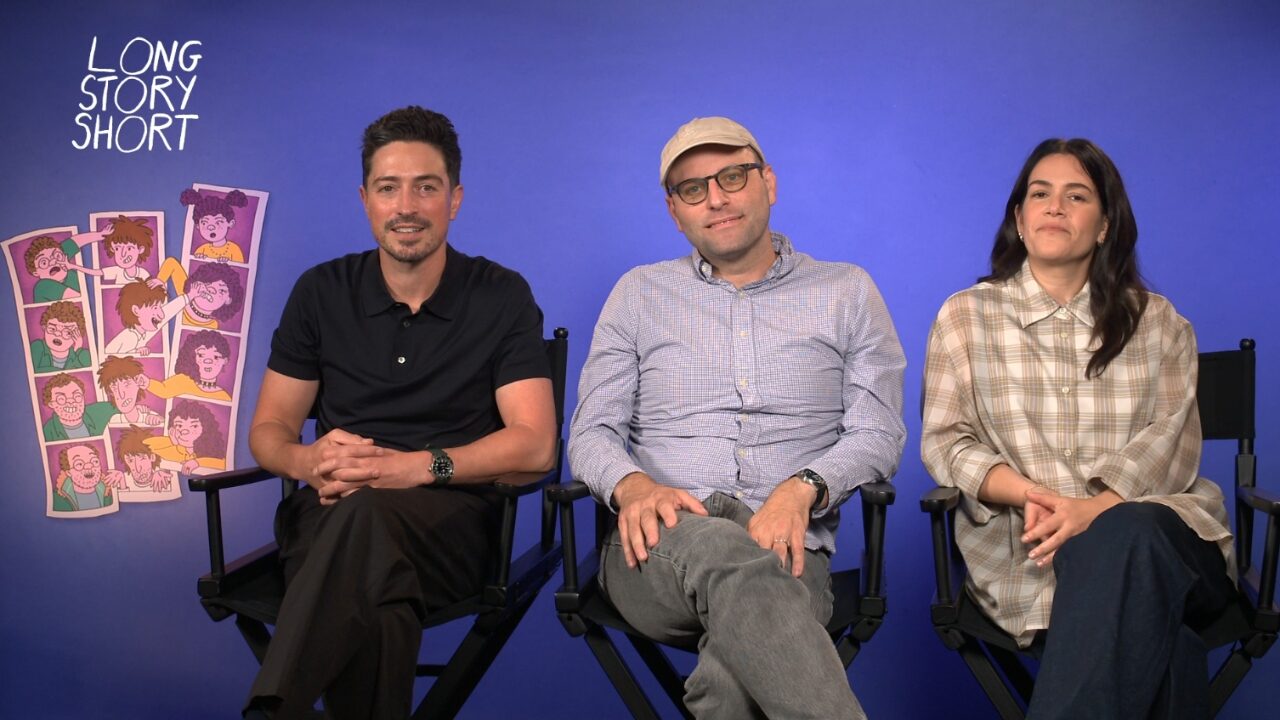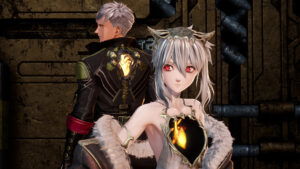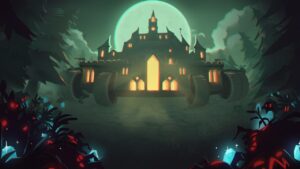BoJack Horseman was one of the shows that demonstrated what was possible with adult animation and helped Netflix cement its place as a destination for unique and compelling stories. Netflix gave its creator, Raphael Bob-Waksberg, the freedom to explore the story he wanted to tell and to do so in a unique — and sometimes difficult — way.
He is now back with a new show, one that feels more grounded and more personal: Long Story Short. The series takes many of the concepts we saw in BoJack Horseman but filters them through the lens of a family, exploring the trials and tribulations that come with growing up and raising children.
In the run-up to this series, Netflix gave us the opportunity to speak with Raphael Bob-Waksberg, Ben Feldman and Abbi Jacobson about the show, the process of bringing it to Netflix, and what viewers can expect when they tune in. While it may be a slight shift from his last project, Long Story Short offers plenty of heart, drama and the sharp comedy we have come to expect from his work.
How did Long Story Short come to be, and what made you go with a more down-to-earth world instead of a concept as out-there as BoJack Horseman?
Raphael Bob-Waksberg: Sure. I would say that one version is that I had children. So I was just thinking about family in different ways. And I think when you have kids, you think about your own upbringing. You think about, what do you want to keep the continuity of? And what do you want to break and do differently? And how hard it is to hold on to the things that you loved, and how hard it is to break away from the things you don’t love?
That was kind of the beginning of the germ of the idea here is to take some characters and kind of see them in all of their identities as children, but then also as parents themselves, as spouses, and as siblings.
Long Story Short surrounds the Jewish family and their experiences. What was it like to bring this story to life, both in writing and from an acting standpoint?
Raphael Bob-Waksberg: Um, well, I’ll talk about the writing standpoint first, and you guys can talk about the acting.
Ben Feldman: Or, we could swap. Swapsies?
Raphael Bob-Waksberg: You want to do it? I’ll do acting, and you’ll do writing?
Ben Feldman: [Laughs] I couldn’t.
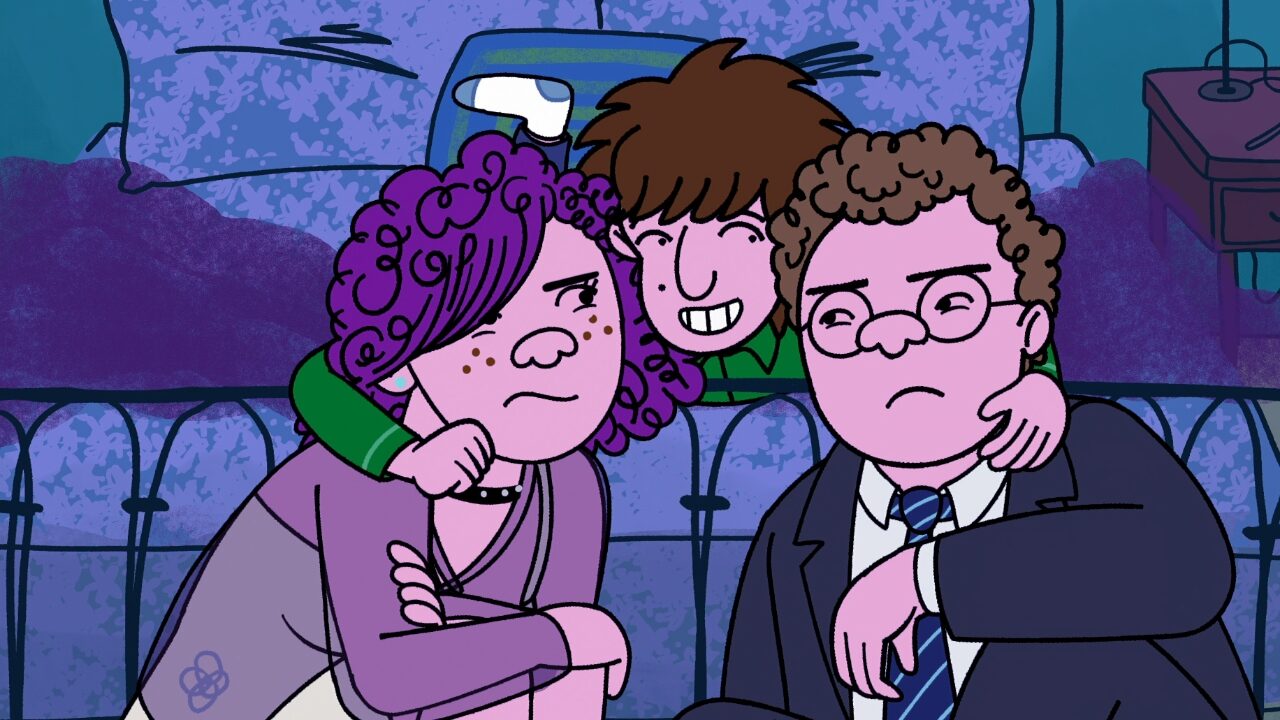
Raphael Bob-Waksberg: I think it was nice for me because it felt like, “Oh, this is a new gear for me,” that I have this whole wealth of experience and observations that I haven’t really used in my other work. And I think, when you write a lot, sometimes you feel like, “Oh, am I out of it? Did I use everything I’ve got?” And so it was kind of, it felt like this cheat code of like, “Oh, there’s this whole other area that I haven’t touched. What do I want to say about that? What do I want to explore about that?”
Abbi Jacobson: For me, I mean, you had just mentioned this. Right when I started, we had a meeting. I think I had been really identifying myself more with “writer” than “actor”. Maybe I just hadn’t been acting as much. And to come on to something like this, where the writing is so strong emotionally and…emotionally and humorously? What’s the opposite?
Raphael Bob-Waksberg: Comedically?
Abbi Jacobson: Comedically!
Raphael Bob-Waksberg: She’s a writer. [Laughs]
Abbi Jacobson: I should identify more with that!
Ben Feldman: You’re an actor today.
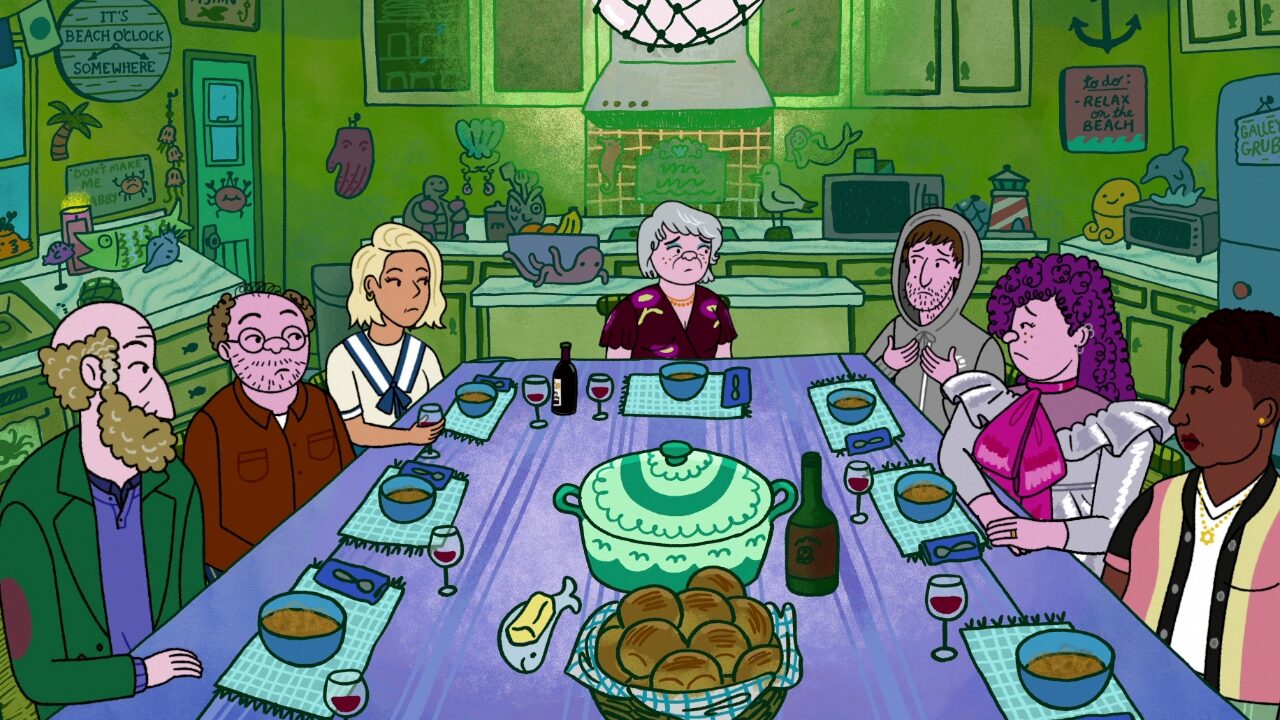
Abbi Jacobson: But it had everything. And to come on to something where you can just trust as an actor, that’s just like it makes it such an easier and more exciting thing to come on where I’m such a fan already. I could just trust as an actor, “Oh, everything is just there. I am a fan of the show I’m on.” That’s like the best thing you could ever hope for.
So finding…I didn’t feel like I had to find it. Shire was there. And like, we got to do these table reads where we really got to connect with the other actors, even if we weren’t able to record together. It just felt like… the table was set.
Ben Feldman: Yeah. And my answer is pretty much the same. It’s the same as his. But for me, in that it was, these are relationships, these are tones, these are stories, and these are people that I am intimately familiar with my whole life. And I don’t think I’ve ever…I’ve never pretended with them before. It was that. It was like, “Oh, these are a bunch of things I can do that I didn’t, that I haven’t gotten a chance to use, and I won’t be bored with myself on this one.”
Now you’ve all had time to work with live action versus animation-based roles. It is often said that animation is a lot more secluded and less connected. How were you able to create that kind of bond on Long Story Short, since you’re playing a family?
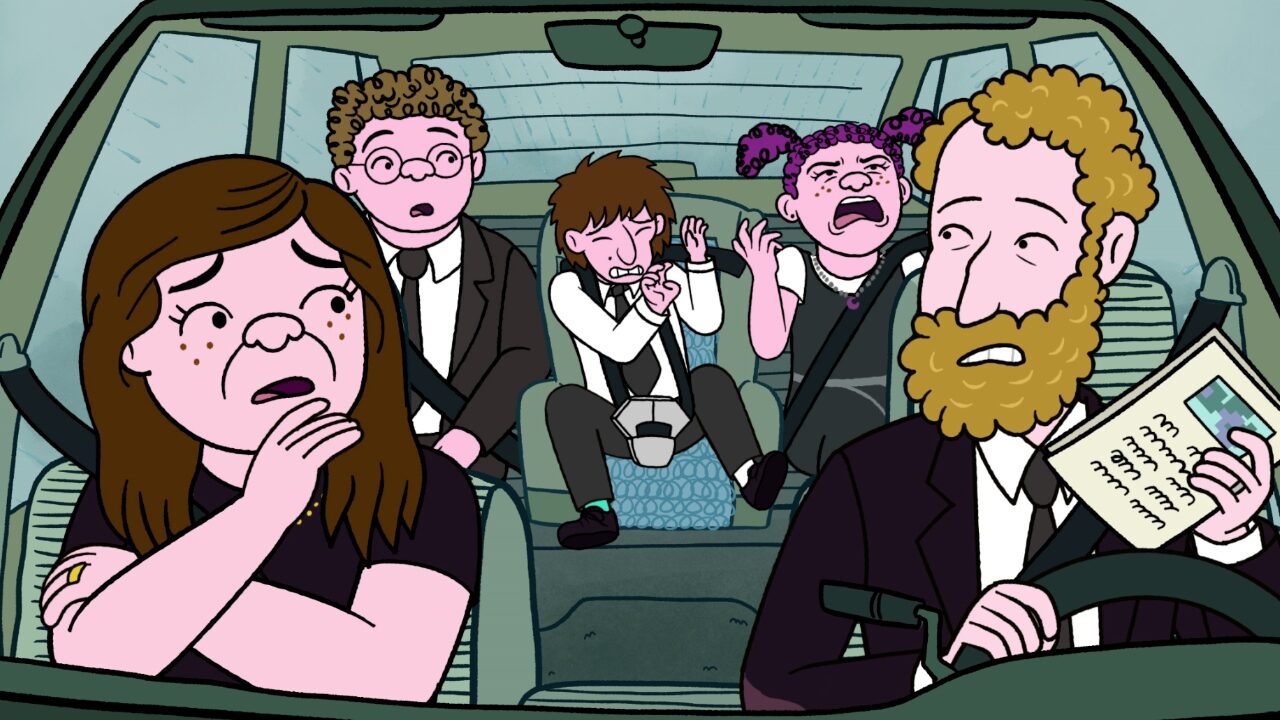
Ben Feldman: Well, we had these incredible table reads that are not something that you get in the typical animation world. Every single episode was preceded by a big table read with everybody in the cast and all of Netflix and all of the writers and the studio. And so it was like doing a play, a one-act, every week before we would record.
Everybody found their rhythms there. Everybody got to hang out there. Everybody was at the top of their game. Everyone was hilarious. People cried. I remember looking across the table, an actress that I was in a scene with, and she was sobbing, and I was like, “Oh my God, she’s really over-doing it.” [Laughs]
Raphael Bob-Waksberg: “I’m a really good actor!”
Ben Feldman: No, I’m just kidding! “I’m killing it!”
Raphael Bob-Waksberg: “I’m really nailing this!”
Ben Feldman: But those were paramount to this, I think, to my experience of doing this [Long Story Short].
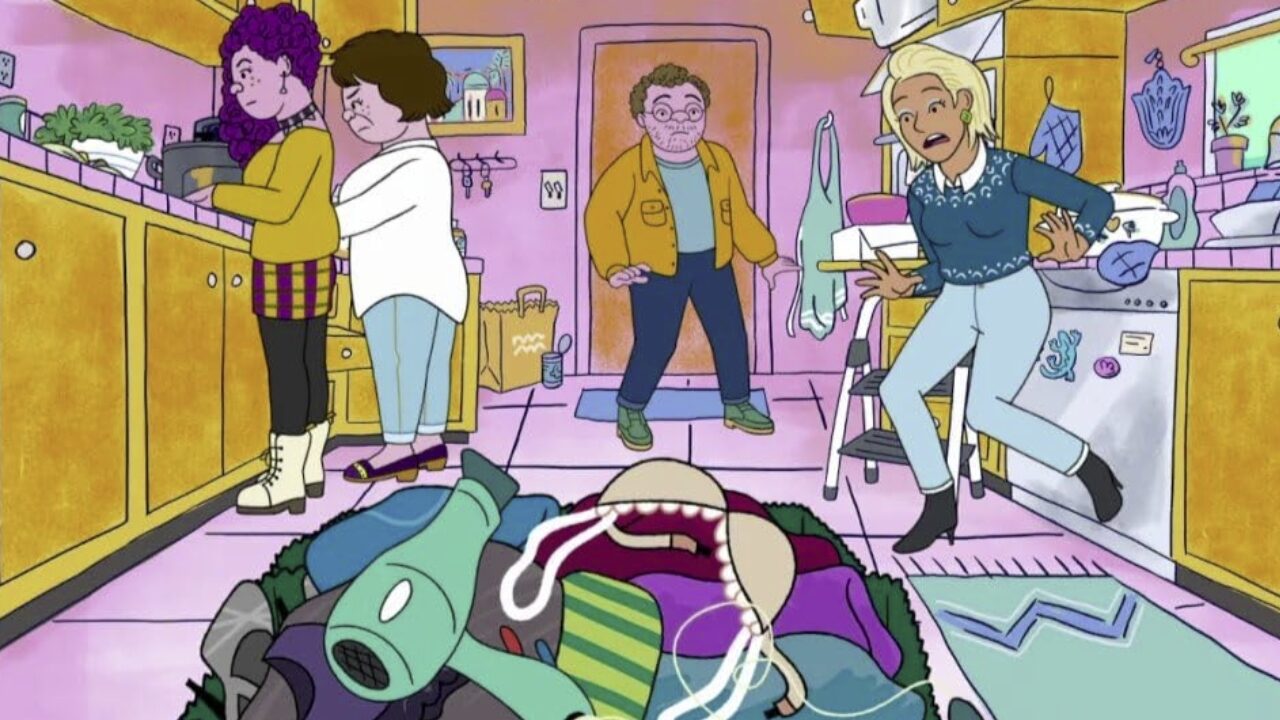
Raphael Bob-Waksberg: And that was, I’ll say, as a producer, like that was by design. We really did look for actors who could come to the table read. I remember Linda, our casting director, would sometimes float some really big names, and I would say, “Would they come to the table read?” She said, “I don’t think so.” “Well, then…”
Ben Feldman: Screw ‘em!
Raphael Bob-Waksberg: “…let’s get someone who’s excited to be here and wants to be a part of it.”
Ben Feldman: That’s awesome.
Raphael Bob-Waksberg: And it really did. I think you can feel it in the show, that feeling of like we were there together and we’re making this thing together.
Ben Feldman: Right.
Awesome. Thank you so much for your time.
All: Thank you!
Long Story Short releases on Netflix on August 22, 2025.
